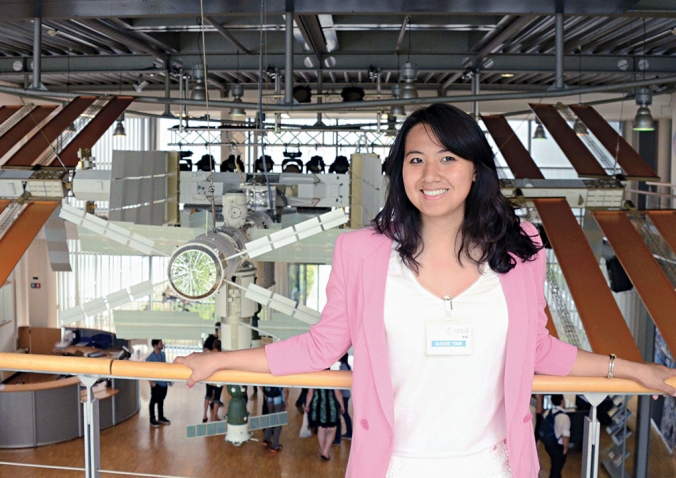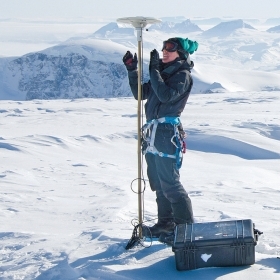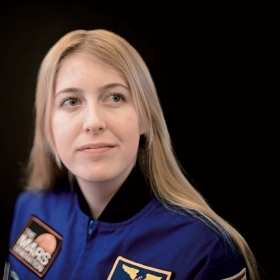To say that Charlotte Kiang ’13 never expected to be sitting in Mission Control at SpaceX commanding a spacecraft attached to the International Space Station would be a massive understatement. In fact, for the first half of Wellesley, she was considering majors in English, economics, and political science, and assumed she would pursue a more traditional path, like law. “I don’t think aerospace engineering was even on my radar at that point,” she says.
So how did Charlotte end up becoming an engineer at SpaceX? It was a journey that began when NASA launched its final space shuttle, Atlantis, the summer of 2011. Charlotte was covering the event as a journalism intern, and as she began learning about the space shuttle program and what goes into a launch, she found herself hooked.
“I was fascinated by how this one pursuit requires efforts from people in so many different [technical] disciplines, and I really wanted to be a part of that, instead of just writing about it,” she says.
Charlotte returned to Wellesley her junior year determined to become involved in the space industry in a technical capacity, and opted to major in math. The next summer, the Wellesley network helped her secure a NASA internship at the Johnson Space Center in Houston, where she worked on designing a foot sensor so astronauts could control their jetpacks hands-free.
“Through that internship I became really interested in the way that humans interact with the space environment, and with technology in general,” she explains. “There are so many things that we take for granted on Earth, like that if you are standing, your foot is going to be pushing down on a shoe, and that’s not the case in space. And just something as simple as that can fundamentally drive how you design a system that’s going to be used in zero gravity.”
Post-Wellesley, Charlotte took a job at Boeing, where one of her favorite projects was designing a space toilet for the CST-100 spacecraft. In the process, she realized that to continue working on the hardware and design projects she found most interesting, she would need an engineering degree.
Charlotte then headed to Cornell, where she earned a master’s degree in biomedical engineering while exploring how to build life-support systems for humans in space. A real-life version of The Martian, her thesis was an optimization of what crops humans should grow in a greenhouse on Mars. (Charlotte says while potatoes are, in fact, cheap and easy to grow, they don’t provide complete nutrition).
Charlotte also co-founded the Cornell Microgravity Research Team, competing in a challenge to design an asteroid-sampling tool for astronauts. She and her team developed a “float sample grabber” she describes as akin to zero-gravity salad tongs, and tested the device at the Johnson Space Center’s Neutral Buoyancy Lab in an underwater mock-up of the International Space Station.
Following grad school, Charlotte landed at SpaceX, where she works as a mission integration engineer for the crew program. While Charlotte can’t share many details of her job, she generally handles mission management and certification, which involves working directly with NASA to ensure that the Dragon 2 spacecraft is on track to fly astronauts to space as quickly, safely, and reliably as possible. As a Dragon operator, Charlotte is also one of the engineers who commands the Cargo Dragon spacecraft in orbit.
For Charlotte, SpaceX is the epitome of her passion for space travel that was sparked by the Atlantis launch years ago.
“There’s no other company in the world that does what we do at SpaceX, so it feels really rewarding to be even a small part of that,” she says. “At the end of the day, when my career is over, I want to know that I’ve made a positive difference for humanity, and I think that launching people into space and potentially being part of creating the first Mars colony ever is something that will be incredibly impactful.”








We ask that those who engage in Wellesley magazine's online community act with honesty, integrity, and respect. (Remember the honor code, alums?) We reserve the right to remove comments by impersonators or comments that are not civil and relevant to the subject at hand. By posting here, you are permitting Wellesley magazine to edit and republish your comment in all media. Please remember that all posts are public.